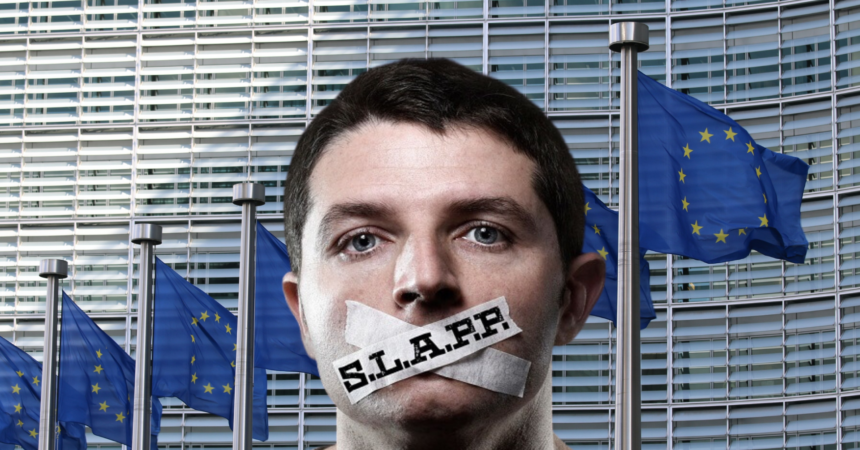Member states “deleted many elements” and were “disappointingly unambitious” when voting on amendments to the proposal for an EU-wide anti-SLAPP directive intended to protect journalists from abusive lawsuits aimed at silencing them, European Parliament rapporteur Tiemo Wölken told a media briefing on Monday.
Wölken forms part of the European Parliament Committee on Legal Affairs, which is expected to discuss the directive on 27 June ahead of the plenary vote slated for 11 July.
Wölken claimed that the directive, which has been criticised by the European Federation of Journalists (EFJ) for “watering down” the initial proposal’s aims and applying to only a select few cases of legal harassment journalists might face, has since had elements reintroduced in order to widen its scope.
The directive aims to combat Strategic Lawsuits Against Public Participation (SLAPPs) and was first proposed by the European Commission last year. The Commission’s initial proposals were reworked by the European Council and were then limited purely to cases of cross-border SLAPPs in which the parties involved are based in different countries.
The proposal has since been expanded by the Commission to include reports published by “electronic means” which pose a public interest to member states outside that in which the publication is based.
While admitting that this was still limited, Wölken said that in this way more cases could be covered by the directive. He said that the directive’s limitation to cross-border cases was “an inherent issue with Union law”. He said that that while the EU could address issues of cross-border discrimination, “it cannot address member state’s discrimination against their own citizens”.
Wölken also said that the directive would call for member states to set up national “one-stop shops” to aid SLAPP victims with legal and mental health resources.
Answering questions from The Shift on how the directive would ensure such one-stop shops’ impartiality in member states with governments who themselves initiated SLAPP suits against newsrooms and journalists, Wölken said “member states should establish the one-stop shops with the help of the Commission and not alone”.
The Shift has been involved in a years-long legal battle with several government bodies who initiated SLAPP suits against the newsroom in order to prevent it from obtaining information which should be publicly accessible. In May, The Shift won its 12th Court of Appeal case in relation to these suits.
Expanding on his answer, he said “the one-stop shop should be independent from government and will be scrutinised by the Commission”. He cited the Commission’s “toolbox of sanctions” as a means to address any deficiencies.
The European Commission’s infringement proceedings can take years to have the desired effect on member states. Letters of formal notice calling attention to the issue are the first step in a three-step process. These are then followed by a reasoned opinion, which is a formal notice to comply with EU law. If this is not adhered to, member states are taken to the European Court of Justice.
Commenting on the eventual implementation of the directive in member states’ legislation, Wölken said the directive represented a “minimum requirement for member states”, and allows for individual EU member’s legislation to better protect journalists.
The Maltese government is yet to implement the recommendations for journalists’ protection from the inquiry into the murder of Daphne Caruana Galizia, with the government-appointed “media experts committee” yet to produce any practical tangible results at the end of their 18-month mandate.
In comments to The Malta Independent over the weekend, MEP David Casa called the EU’s upcoming directive “too conservative” saying that he “disagreed that the Council’s position strikes the right balance.”
He said the Council’s version of the directive narrowed and restricted “the meaning of ‘abusive’ proceedings and the early dismissal mechanisms, which is one of the most important components of the file”.
On June 12, The Shift reported how upon the text’s adoption the EFJ issued a statement that said the text “falls far short of the legislation’s original objective: to protect journalists and the right to information in the European Union”.
Following a discussion by the Legal Affairs Committee on 27 June, the directive proposal will be submitted and voted on in plenary before its eventual adoption.












